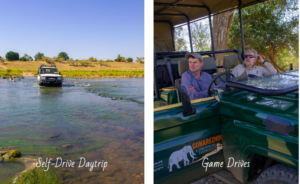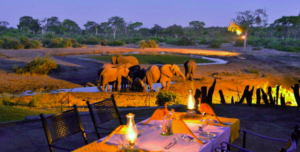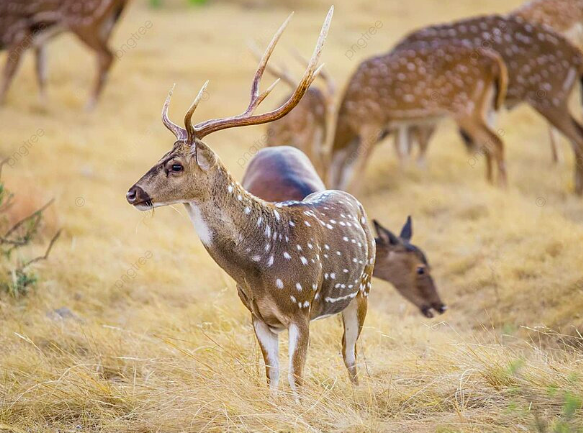
Axis deer hunting Texas
Here in central Texas, you may experience the excitement of the hunt amidst the breathtaking scenery. Located in the heart of Texas’s expansive landscape, Axis deer hunting is an exciting and one-of-a-kind activity that attracts experienced hunters and nature lovers. Axis deer, who are famous for their beautiful coats and antlers, find the perfect home in the state’s varied ecosystems.
Get ready to be captivated by the breathtaking Texas landscape as you face off against the elusive Axis deer on this thrilling journey. The Axis deer hunting experience in Texas guarantees an exciting voyage into the heart of wild, untamed landscapes, from hard hunts across mesquite-dotted plains to the anticipation of spotting these gorgeous beasts against a Texas sunset. Come explore the complexities of Axis deer hunting with us, where the tales of talent, patience, and the wild nature of the Texas countryside unfold with each hunt.
How to hunt Axis Deer In Texas.
While hunting Axis deer in Texas may be a thrilling and satisfying experience, hunters must ensure they adhere to all restrictions and preserve the environment. If you’re planning an Axis deer hunt in Texas, this is a must-have guide:
- Study and Preparation:
a. For up-to-date information on hunting seasons, rules, and licence requirements, visit the website of the Texas Parks & Wildlife Department (TPWD). Keep yourself updated on any changes to the axis deer shooting season, which is typically open all year on private property.
b. One common location for Axis deer hunts in Texas is private ranches. Find a trustworthy ranch that lets you pick between guided and unguided hunts, and do your research.
- Acquire the Required Permits:
a. Axis deer-specific tags or permits are available as part of a Texas hunting licence that may be purchased from the Texas Parks and Wildlife Department (TPWD). Make careful to review the regulations appropriately, as non-residents may have different obligations.
b. Obtain formal permission from the landowner before hunting on private land. Doing this will guarantee that you are following all hunting regulations in the Lone Star State.
- Gear and Equipment:
a. Bow or Gun: Pick a bow or gun that you’re familiar with and that meets the requirements set down by the state of Texas for hunting. Accuracy is key while hunting axis deer since they might be difficult.
b. Apparel and Disguise: Take into account the weather forecast and choose hunting clothes suitable for the season. For stalking, camouflage could be useful.
c. To enhance your visibility, especially when observing deer from a distance, it is recommended to have binoculars or a spotting scope.
- Scouting mission:
a. Research the Landscape: Learn the lay of the land where you will be hunting. You can increase your chances of success by learning the behaviours and movement patterns of adaptive axis deer.
b. Install trail cameras to record the antler size and behaviour of the local Axis deer population and to keep an eye on any signs of deer activity.
- Methods for Hunting:
a. Because axis deer like open areas, stalking is a common hunting technique. Utilise the landscape as cover while moving stealthily.
b. Blinds and feeders: Axis deer are commonly attracted to ranches in Texas by use of these. If you’d rather stay put, here is one option to consider.
- Moral and Lawful Issues to Think About:
a. Ethical Shot Placement: Minimise pain by ensuring proper shot placement. To get a clean kill on an axis deer, aim your gun under its unique hump.
b. When harvesting Axis deer, be sure to tag and report them according to the requirements set down by TPWD.
- After the Hunt:
a. Mastering the art of field dressing is essential for keeping meat tender and juicy.
b. Contact a reliable taxidermist in advance if you intend to mount the animal.
To increase your chances of having a successful and fun Axis deer hunting trip in Texas, take these procedures and be sure to adhere to local rules. Prioritise safety, ethical hunting methods, and wildlife and environmental preservation at all times.
5 Best axis deer outfitters Texas
1- Sisco D Ranch

Sisco D Ranch was established to assist sportsmen in reconnecting with nature as nature intended. The property reflects a family’s goal to acquire outstanding Texas real estate and learn the qualities that ranching has to offer.
Their objective is to encourage others to gather in the vast outdoors, away from the bustling streets of the city, and to appreciate the tranquil isolation that raw land provides.
Sisco D Ranch is a family-friendly atmosphere for both novice and seasoned hunters looking to make the most of an authentic Texas harvest. Sisco D Ranch understands that with families and jobs, there isn’t much time left in the day, so let them handle the tracking and game finding for you so you, your family, and friends may continue a tradition of hunting in the great outdoors. They are one of Texas’ best axis deer outfitters.
2- West Kerr Ranch

The ranch is located in South Central Texas, in the Hill Country. (Edwards Plateau) We are 100 miles west of San Antonio and 45 miles northwest of Kerrville on Highway 83. While portion of the Hill Country is steep and mountainous, their ranch is located on the border between the Hill Country and West Texas, thus the landscape is level to rolling. The famed Texas Wildflowers beautify our hunting pastures throughout wet spring seasons, so bring your camera.
Exotic animals on their property include Axis Deer, Blackbuck Antelope, Aoudad, Sika, Fallow Deer, Mouflon Sheep, Scimitar Horned Oryx, and Rocky Mountain Elk. Because each exotic species acts differently in the wild, we provide a variety of unique hunting strategies.
These creatures were born and bred in the wilderness. Because their ranch spans 10,500 acres and is surrounded by game wire, their deer may develop territories and travel large distances. In other terms, this hunt is a genuine “fair chase.” West Kerr range has one of the best deer outfitters in Texas.
3- Martin Hollow Outfitters

Martin Hollow Outfitters is the greatest option for a genuine Texas hunting trip. Judd Martin, the owner/operator, has over 20 years of guiding expertise and offers fantastic settings with over 30,000 acres in gorgeous west central Texas. They have packages to suit any hunter, from “needing more meat in the freezer” to “hanging that trophy on the wall.”
They provide hunts for trophy axis, Rio Grande turkey, trophy whitetail, black buck, and a variety of other exotics. We want to make your search a very unique and memorable experience. Contact them immediately to reserve your real hunting adventure!
4- Lucky 7 Ranch

They offer first-rate individual, group, and corporate hunts. The Lucky 7 ranch is located seven miles outside of Eden, Texas.
The Lucky 7 Exotic Ranch offers first-rate Native and Texas Exotic Hunts on 3,000 acres of superb, well-managed habitat that can easily support self-sustaining herds of European, African, and Native big game species.
Whether this is your first hunt or you are a seasoned hunter, they will ensure you have a memorable experience from the moment you approach the Ranch gate until you depart as a friend. To properly care for your trophy, they may provide on-site housing, private rooms, meals, professional guides, caping, and a walk-in game cooler. They are one of the best outfitters for exotic game in Texas.
5- The 777 Ranch

Jeff Rann, African Dangerous Game Professional Hunter, has made it his mission to bring a little piece of Africa to Texas since acquiring the 777 Ranch.
The devotion and experience he gives to the 777 Ranch from his over 50 years as a hunter and wildlife advocate has raised its legendary reputation, which cannot be matched anywhere.
777 Ranch is located in South Texas on the outskirts of the Texas Hill Country, home to the legendary South Texas Whitetail.
This area boasts one of the largest concentrations of natural protein habitats in the United States. This South Texas Wahia shrub is similar to the Acacia bush of Southern Africa and is the secret of natural horn growth for the 777 Ranch’s browsers.
777 Ranch includes eight hunting lodges. Each 2 bed 1 bath sleeps up to 4 people. The Main Lodge has gourmet dining, a bar and a lounge.
The 777 Ranch includes a huge store where you may buy products that you may need during your vacation to the 777 Ranch as well as items to take home to remember your visit.
Best Axis Deer hunting Locations in Texas.
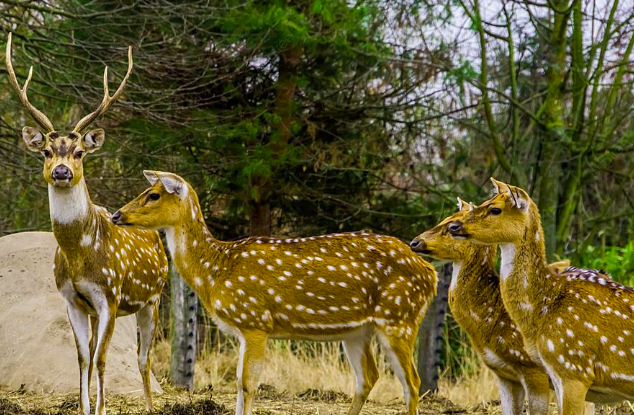
Many private ranches in Texas have Axis deer and other exotic game animals under their care. Some areas are well-known for having great chances to shoot Axis deer:
The Hill Country:
Central Texas’s Hill Country is a favourite spot for Axis deer hunters because to its beautiful scenery and plenty of animals. Guided hunts are available at several ranches in the region.
Edwards Plateaus:
A large and varied region, the Edwards Plateau is sometimes called the Texas Hill Country. The vast fields and brushy regions are perfect for Axis deer to live in. Find ranches in this area that focus on raising rare and exotic animals.
South Texas:
Another great place to hunt Axis deer is in south Texas, where you may find both wide fields and brush terrain. There may be ranches in this area that provide guided and unguided hunting opportunities.
Trans-Pecos Region:
Some ranches in the west Texas Trans-Pecos region provide Axis deer shooting, and the region is famous for its rough terrain. An exhilarating hunting experience may be had on the difficult terrain.
Central Texas:
Axis deer are also found in East Texas, however they are not as prevalent there as they are in other locations. If you’re looking for a change of scenery, this location may be a good place to hunt or find a ranch.
Ranches With High Perimeter Fences:
In Texas, you may find a lot of ranches with high fences that focus on exotic animals, such Axis deer. Hunting on these ranches is usually sustainable since they keep their numbers in check.
Make sure you have the most current information on rules, seasons, and hunting chances while planning your Axis deer hunt by contacting the Texas Parks and Wildlife Department and area ranches. Think about how the ranches may improve your hunting trip as a whole by taking use of their guided hunts, lodging, and processing facilities. Never go hunting without first securing all of the required licences and licences.
Axis Deer hunts on Private Land:
Hunting axis deer on private property in Texas is often permissible at any time of year.
Public Land Axis Deer hunts:
Before heading out to a wildlife management area or other public hunting ground to take down an Axis deer, be sure you’re familiar with the rules and laws of that region.
Mandatory Reporting:
Keep in mind that the TPWD could have reporting obligations for Axis deer that are harvested. There is usually a deadline by which hunters must declare their harvest.
Axis deer hunting seasons, bag restrictions, and other pertinent laws can vary annually, so it’s important to consult the official TPWD website or contact them directly for the most current and correct information. You should also inquire about any extra regulations or policies by contacting the ranch or property in question where you want to go hunting. Before going hunting, make sure you have all the required licences and permissions.
Can you shoot axis at night in Texas?
It is often not permitted to shoot Axis deer at night on public properties in Texas. Nevertheless, private property does have a few exemptions.
Under some circumstances, the Texas Parks and Wildlife Department (TPWD) permits nighttime hunting of particular exotic species, including Axis deer, on private grounds. In most cases, this entails conforming to the rules and restrictions established by the TPWD and acquiring a legitimate night hunting licence.
Prior to organising any night hunting expeditions, it is imperative to verify with the TPWD the present hunting restrictions as well as any particular prerequisites. New breakthroughs or revisions to the rules may cause regulations to alter.
Make sure you know and follow any regulations that may apply to night hunting on private ranches or properties by contacting the landowner or hunting outfitter in advance.
Hunting restrictions are in existence for a reason:
to ensure everyone’s safety, encourage moral hunting, and protect endangered species. To have a responsible and lawful hunting experience, safety must always come first and you must follow all local restrictions.
What caliber is best for deer hunting?
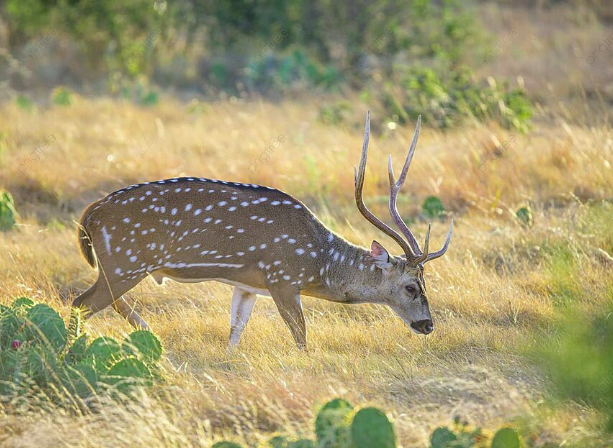
Personal taste, shooting skill, and the particular hunting conditions are a few of the variables that could influence the choice of calibre for hunting Axis deer. Among the most common and effective calibres for Axis deer are the following:
.243 Winchester:
Because of its relatively little recoil, the.243 Winchester is an excellent choice for hunters with sensitivity to the noise or for families with younger members of the hunting party. It works well at reasonable distances.
.270 Winchester
The.270 Winchester strikes a nice mix of power and controllable recoil, making it a very adaptable calibre. Many hunters use it because it works well for shooting Axis deer from a variety of distances.
.308 Winchester:
The.308 Winchester is a moderately recoiled, extensively used, and adaptable calibre. At both close and medium ranges, it delivers enough power for hunting Axis deer.
6.5mm Creedmoor:
Thanks to its pinpoint accuracy, little recoil, and potent ballistics, the 6.5mm Creedmoor has become a popular cartridge. At modest distances, it is appropriate for shooting Axis deer.
7mm-08 Remington:
The 7mm-08 Remington has excellent ballistics and very little recoil. When shooting Axis deer, this calibre works well, particularly at medium ranges.
.30-06 Springfield.
For Axis deer hunting, the reliable and adaptable.30-06 Springfield is the way to go. A variety of bullet weights are available, and it works well at different distances.
Think about how well you shoot, how much recoil you can handle, and how far you usually hunt when choosing a calibre. Select a calibre that you are comfortable and competent with handling since shot placement is critical.
Be sure to research local legislation regarding Axis deer hunting, including any limitations on calibre size that could be in place. In addition to being familiar with how your rifle performs in various settings, you should sight it in properly.
The most important thing while hunting deer is to choose a calibre that you are proficient with shooting correctly and that complies with the laws and regulations of your hunting region. The accuracy of your shots depends on the calibre you use, so pick one that you’re comfortable with, use often for practise, and that works for your hunting area. There may be limitations or prerequisites for the calibres that are permissible for deer hunting in your region, so it’s important to research and adhere to these rules before making a final decision.
FAQs about Axis Deer Hunt in Texas
Axis deer shooting in Texas is the subject of the following frequently asked questions (FAQs):
1. Do I need a special license to hunt Axis deer in Texas?
Texas Parks and Wildlife (TPWD) issues hunting licences, therefore yes, you’ll need one. When shooting Axis deer, particularly on private or controlled territory, it is important to verify whether any extra tags or licences are necessary.
2. When is the Axis deer hunting season in Texas?
Hunting axis deer on private property in Texas is often permissible at any time of year. But before you go hunting, make sure you contact the TPWD to find out about their restrictions and whether the seasons have changed.
3. Can I hunt Axis deer on public land in Texas?
Depending on the area, Axis deer hunting may be legal on some Texas public property. For details on whether public hunting areas or wildlife management areas may allow Axis deer hunting, you can contact the TPWD.
4. Are there restrictions on the caliber of firearm for Axis deer hunting in Texas?
For details on any limitations on gun calibres, consult the TPWD rules. While standard deer hunting calibres are usually fine, it is essential to follow all applicable local rules.
5. What is the recommended hunting method for Axis deer in Texas?
Stalking and hunting from blinds are two of the many hunting techniques available for axis deer. Axis deer may also be attracted to some ranches by means of feeders. Your own tastes and the particular rules of the hunting location will determine the preferred technique.
6- Can I hunt Axis deer with a bow in Texas?
In Texas, archery is a prevalent and acceptable way of hunting Axis deer. Check that your archery equipment meets state standards.
7- What should I do after a successful Axis deer hunt?
To protect the quality of the meat, use correct field dressing and processing processes. Be aware of and adhere to any reporting requirements imposed by the TPWD.
8-Are Axis deer guided hunts available in Texas?
- Yes, many private ranches provide guided Axis deer hunts. Guided hunts may improve your hunting experience and boost your chances of success. Based on your tastes, conduct research and select a trustworthy outfitter or ranch.
9- Do axis deer roam freely in Texas?
In Texas, axis deer are typically thought of as alien, or non-native, animals rather than native ones. Since their introduction to the Lone Star State in the early 1930s, populations of these creatures have spread across the Lone Star State. Some of the best places for axis deer to live are in the Texas Hill Country.
Although Axis deer are not indigenous, you can find them in “free-range” settings in several regions. This implies that they are free to roam anywhere they choose, not just in zoos or other enclosed spaces. Axis deer are common in Texas and may be seen freely roaming the state’s natural landscapes, whether on private or public property.
Can you hunt axis deer at night in texas
The Texas Parks and Wildlife Department (TPWD) authorises night shooting of some exotic species, including Axis deer, on private properties under certain conditions. This generally entails getting a valid night hunting permit and adhering to the TPWD’s requirements.
Before organising any night hunting activity, it is critical to check the current hunting rules and special requirements with the TPWD. Regulations are subject to change, and new developments or revisions to the regulations may occur.
Related



